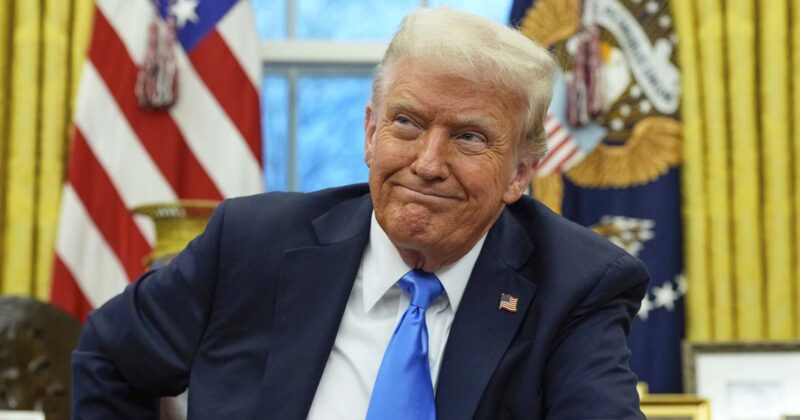The Trump administration scored a huge win on Saturday in the D.C. Circuit Court of Appeals. Not only did the court grant the administration’s request for a stay pending appeal in several consolidated/related cases, but it set forth the framework that district courts should be adhering to in analyzing many of the cases currently pending before them regarding the administration’s actions.
Since President Donald Trump resumed office in January and began issuing a series of executive orders and actions aimed at dismantling and/or sizably reducing the size of the bureaucratic state, lawsuit after lawsuit has been filed against the administration in an effort to thwart his agenda.
Here’s the compliments of the court:
The United States Agency for Global Media oversees six federally funded broadcast networks. One of these, Voice of America, is operated by government employees and contractors. Others, including Radio Free Asia and Middle East Broadcasting Networks, operate as private, non-profit corporations. Through appropriations, Congress has allocated specific funding for the private networks, which USAGM disburses through grants.
On March 14, 2025, the President issued Executive Order 14238, which directed USAGM leadership to reduce the agency to the minimum level of operations required by statute. In response, USAGM placed over 1,000 employees on administrative leave, terminated nearly 600 personal-service contractors, and terminated RFA’s and MBN’s grant agreements for the 2025 fiscal year. USAGM further directed its personnel abroad to cease broadcasting through VOA.
Various plaintiffs, including USAGM employees, contractors, and grantees, filed lawsuits to challenge these actions in our district court. In one of the cases, the district court granted a preliminary injunction requiring USAGM to (1) restore its employees and contractors to their pre-March 14 status, (2) restore its FY 2025 grants with RFA and MBN, and (3) restore VOA as “a consistently reliable and authoritative source of news.” The court granted parallel relief in the other cases.
The administration appealed from those rulings issued by Judge Royce Lamberth (a Reagan appointee) in cases that have been referenced in several of the Evening Docket installments (Widakuswara, Abramowitz, Middle East Broadcasting Networks (MBN), Radio Free Asia (RFA)).
In granting the administration’s motion to stay the cases pending appeal, the Court of Appeals did what many legal observers (particularly those who lean right and don’t suffer from terminal Trump Derangement Syndrome) have been longing to see: They set out some clear guardrails that the lower courts have seemingly forgotten all about.
Margot Cleveland (as per usual) has a great X thread explainer on the ruling, but here is the key portion:
13/ c) you can’t get around Congress limiting district court jurisdiction by creative pleading of claims under other theories; d) with no bond harm to government will outweigh other harm; e) public has interest in Article III obey Article I.
— Margot Cleveland (@ProfMJCleveland) May 3, 2025
In sum, the ruling holds that the courts do not have jurisdiction over personnel decisions (those belong in front of the Merit Systems Protection Board), do not have jurisdiction over grant termimations (those belong in front of the Court of Claims), and the failure to require a bond for the injunction will cause irreparable harm to the government.
As the thread rightly notes, this ruling firmly highlights critical jurisdictional issues that many of the district court judges have been blithely hand-waving away and, even more critically, reminds the courts that just as the executive needs to follow the law, so, too, do the courts.

